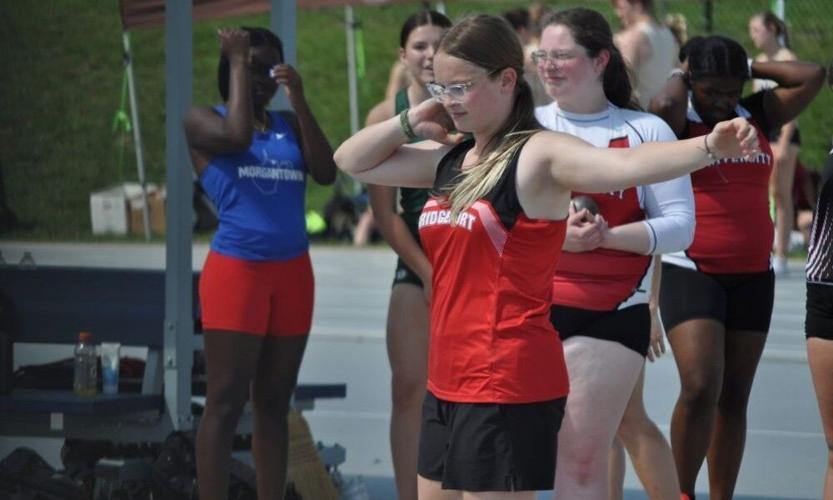
Becky Pepper-Jackson
WASHINGTON – The U.S. Supreme Court has agreed to hear two federal court cases involving transgender youth athletes, including one case from West Virginia.
On July 3, the court granted certiorari in the two cases involving bans on transgender participation in local school and college sports. The West Virginia case – State of West Virginia v. B.P.J. – involves a challenge to the state’s Save Women’s Sports Act.

West Virginia Attorney General J.B. McCuskey
“It’s a great day, as female athletes in West Virginia will have their voices heard,” Attorney General J.B. McCuskey said. “The people of West Virginia know that it’s unfair to let male athletes compete against women; that’s why we passed this commonsense law preserving women's sports for women.
“We are confident the Supreme Court will uphold the Save Women's Sports Act because it complies with the U.S. Constitution and complies with Title IX. And most importantly: it protects women and girls by ensuring the playing field is safe and fair.”
Last week, McCuskey’s office submitted a supplemental filing asking the U.S. Supreme Court to hear the case and uphold the Save Women’s Sports Act. That came a week after the high court issued a landmark decision in United States v. Skrmetti, upholding Tennessee’s law restricting gender-transition interventions for minors and affirming the State's authority to protect kids from risky and unproven medical practices.
McCuskey asked the Supreme Court to hear B.P.J. and reverse the injunction from the Fourth Circuit Court of Appeals.
By granting West Virginia’s petition for certiorari and taking the case, the Supreme Court will be able to settle questions regarding biological sex and sports. Ultimately, the case will decide whether states can define who plays together on sports teams or competes for scholarships and other opportunities that are sex- or gender-based.
“It is time to return girls’ sports to the girls and stop this misguided gender ideology once and for all,” McCuskey said.

Morrisey
Gov. Patrick Morrisey, who was AG when the case began, said he’s pleased the Supreme court is taking up the case. He said he “worked tirelessly” on the case as AG.
“I am optimistic that after hearing the case, the Supreme Court will restore sanity to athletics and allow West Virginia to enforce its commonsense law that prevents boys from competing in girls’ sports,” Morrisey said.
Last spring, the Fourth Circuit Court of Appeals blocked a West Virginia law banning transgender student-athletes from playing on teams consistent with their gender identity, finding the law violates the rights of Becky Pepper-Jackson, a transgender female track athlete.
“Offering B.P.J. a ‘choice’ between not participating in sports and participating only on boys’ teams is no real choice at all,” Fourth Circuit Judge Toby Heytens wrote in the ruling. “The defendants cannot expect that B.P.J. will countermand her social transition, her medical treatment, and all the work she has done with her schools, teachers, and coaches for nearly half her life by introducing herself to teammates, coaches, and even opponents as a boy.”
In April 2021, then-Gov. Jim Justice signed House Bill 3293 into law, barring transgender student-athletes from participating on the school athletic teams most consistent with their gender identity. The following month, the American Civil Liberties Union, the ACLU of West Virginia, and Lambda Legal filed a lawsuit challenging the law on behalf of Pepper-Jackson.
In February 2023, the Fourth Circuit blocked the state’s effort to kick Pepper-Jackson off the team as the legal advocates appealed a lower court ruling upholding the 2021 ban. And the following month, then-AG Patrick Morrisey asked the Supreme Court for an emergency motion allowing the state to enforce HB 3293 and kick Jackson off her middle school’s track and field team. The Court rejected that attempt in April 2023.
In May, Pepper-Jackson, now a 14-year-old freshman at Bridgeport High School, competed in the state track and field championships. She earned a bronze medal in the Class AAA girls’ discus with a 122-foot, 11-inch throw. She finished eighth in the shot put as well.
“A boy is competing in girls’ sports at the high school state track meet in West Virginia,” Morrisey, who now is governor, said about Pepper-Jackson’s participation at the state meet. “It’s wrong and unfair. I’m again urging officials to keep separate scores so that the true winners can be awarded once we win in court.”
Last month, Morrisey also referenced the Pepper-Jackson case when discussing the Skrmetti decision.
“As the former West Virginia Attorney General who spent years defending women’s sports and protecting women’s safe spaces, I’m very grateful for today’s win at the U.S. Supreme Court,” Morrisey said. “With today’s victory, I am optimistic that West Virginia will soon be able to enforce our common sense law that prevents boys from competing in girls’ sports.
“More work remains to remove the injunction, but today represents a big step forward.”
The West Virginia case and the Idaho case – Little v. Hecox – say the state bans violate the rights of transgender and cisgender female students under the Equal Protection Clause of the Fourteenth Amendment of the US Constitution. In addition, West Virginia v. B.P.J. argues that the bans violate Title IX, the federal law prohibiting sex discrimination in educational programs. Federal courts have blocked enforcement of these bans in both lawsuits.
The American Civil Liberties Union and Lambda Legal are representing Pepper-Jackson as well as the transgender student athlete from Idaho in the partner case.
“Like any other educational program, school athletic programs should be accessible for everyone regardless of their sex or transgender status,” said Joshua Block, Senior Counsel for the ACLU’s LGBTQ & HIV Project. “Trans kids play sports for the same reasons their peers do – to learn perseverance, dedication, teamwork, and to simply have fun with their friends.
“Categorically excluding kids from school sports just because they are transgender will only make our schools less safe and more hurtful places for all youth. We believe the lower courts were right to block these discriminatory laws, and we will continue to defend the freedom of all kids to play.”
Lambda Legal Senior Counsel Tara Borelli agreed.
“Our client just wants to play sports with her friends and peers,” Borelli said. “Everyone understands the value of participating in team athletics, for fitness, leadership, socialization, and myriad other benefits.
“The U.S. Court of Appeals for the Fourth Circuit last April issued a thoughtful and thorough ruling allowing B.P.J. to continue participating in track events. That well-reasoned decision should stand the test of time, and we stand ready to defend it.”
Since 2020, 27 states have banned transgender youth from playing school sports. Many of these bans allow for invasive forms of sex testing that put all female student athletes at risk and open the door for any school official or adult to question and harass young women.
The Supreme Court is expected to hear the West Virginia and Idaho cases during its October 2025 term.






